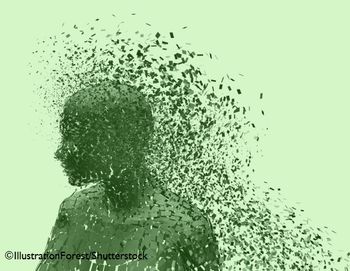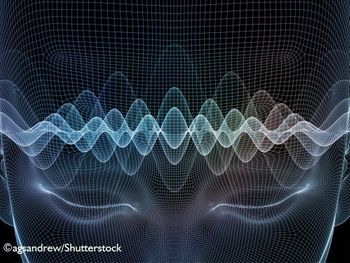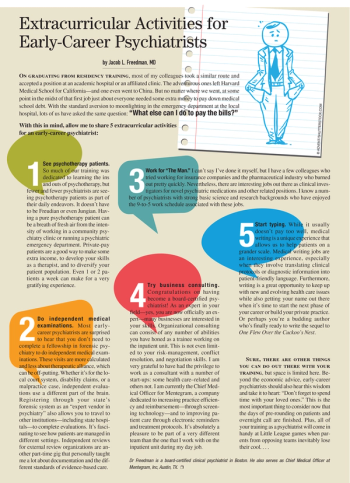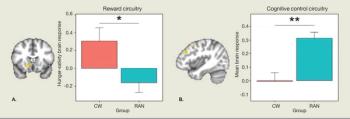
To neglect the cultural components of any given diagnosis or behavior, to ignore the role of culture-based individual attitudes, beliefs or practices in the face of adversity, would be a disservice.

To neglect the cultural components of any given diagnosis or behavior, to ignore the role of culture-based individual attitudes, beliefs or practices in the face of adversity, would be a disservice.

The CDC and FDA have -- at last -- recognized that there might be something of a problem in the way opiates are prescribed!

Broaching the subject of changing behaviors can be daunting. Motivational interviewing may make these conversations easier.

In this study, about 70% of patients who completed suicide had recently sought treatment. Will you recognize those at risk?

This article sheds light on the strengths and weaknesses of various approaches to TRD management in adults 60 years and older.

Is creativity augmented or inhibited by mental illness? Insights from 4 case studies of troubled yet brilliant minds.

What factors lie at the heart of the patient/physician relationship?

He didn’t notice snow falling in the Krankenhaus courtyard the night he fell in love. A mere intern, castrated by Jew-hating med school professors...

The key to identification of prodromal psychosis may lie in community-based outreach.

The personalized medicine approach is predicated upon a greater understanding of the biology of illness and how it plays out-uniquely and specifically-for each individual patient.

First-episode psychosis cases are presented here using the RAISE study model-individual sessions, family psycho-education, social advancement in school work, and an expert psychiatrist prescriber.

Is there clinical evidence for the use of digital tools like smartphone apps for schizophrenia and other psychiatric illnesses?

Depression can be accompanied by cognitive symptoms, but the nature of the relationship between these symptom categories is multifaceted.

What are the effects on the clinician who loses a patient? How to respond?

When treating psychosis, dementia, addiction, and other psychiatric illnesses in older patients, clinicians must be prepared for a multitude of scenarios.

Therapeutic techniques can enhance psychological resilience and may help patients improve their quality of life. Here's how.

An important alternative to pharmaceutical treatments may be at hand.



Do you know the 7 criteria that can help identify those at risk for unhealthy online gaming?

In recent years, health care insurance companies (and the businesses that use them) have begun to invest in mindfulness research and programs What has happened to explain this development?

How to make a DSM-IV–compliant diagnosis when the child’s behavior in school cannot be assessed.

When agitation and psychosis symptoms are severe, is an antipsychotic medication an option? Not always.

Ethics case quiz: A patient's inconsistent decisions regarding treatment are cause for concern. What to do?

How radically do we want to alter the physician’s traditional ethical obligations to the most vulnerable of patients?

Improvement in depressive symptoms appears to have a salutary effect on sexual function.

With the standard aversion to moonlighting in the emergency department at the local hospital, lots of us have asked the same question: “What else can I do to pay the bills?”

Is clozapine still the gold standard for treatment-resistant schizophrenia?

An introduction to our 2-part Special Report on eating disorders, including neurobiology of eating disorders, nutritional needs of patients, clinical response to psychosis, and more.

New insights into neural pathways that play a role in anorexia nervosa, bulimia nervosa, and binge eating disorder.